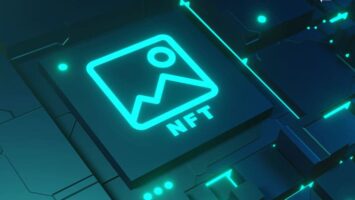SNEAK PEEK
- SEC Commissioners publicly dissent against the SEC’s decision to classify Stoner Cats NFTs as unregistered securities.
- The SEC has officially charged the creators of Stoner Cats with selling unregistered securities.
- Stoner Cats NFTs offered exclusive access to an animated series, allowing fans to engage directly with the content.
The U.S. Securities and Exchange Commission (SEC) has bubbled. On September 13, commissioners Mark T. Uyeda and Hester M. Peirce published a public letter opposing the SEC’s recent decision to classify Stoner Cats NFTs as unregistered securities. This decision has sparked a debate transcending mere regulatory jargon, affecting artists, creators, and the burgeoning NFT industry.
The SEC has officially charged the creators of Stoner Cats with selling unregistered securities linked to the launch of their Non-Fungible Tokens (NFTs) in 2021. According to the regulatory body, the project highlighted specific advantages of owning these digital tokens. Among these is the ability to resell them on secondary markets and earn royalties. Consequently, the SEC considers these characteristics akin to securities.
However, Uyeda and Peirce beg to differ. In their counter-argument, the Republican commissioners likened the Stoner Cats sale to “fan crowdfunding.” According to them, this phenomenon is far from new and is a staple in the world of artists, creators, and entertainers.
Significantly, they drew parallels with the “Early Bird Certificate Packages” sold in 1977, redeemable for Star Wars character action figures and membership in the fan club. Hence, they argue that if the SEC’s Stoner Cats decision were to serve as a precedent, it should also apply to such historical fan engagement models, given that these certificates could have been resold.
Moreover, the dissenting letter stated that the SEC’s stance “lacks any meaningful limiting principle,” implicating creators across various domains. The Stoner Cats NFTs, besides offering owners exclusive access to an animated cartoon series featuring stars like Ashton Kutcher and Mila Kunis, also allowed fans to “engage directly with the content they want to watch.” Additionally, the funds raised from the NFT sales flowed directly to the project’s team.
It’s worth noting that this internal discord within the SEC adds another layer of complexity to the already intricate landscape of digital assets and tokens. As regulators grapple with applying traditional legal frameworks to modern-day innovations, dissenting voices like those of Uyeda and Peirce underscore the difficulties in reaching a one-size-fits-all conclusion.
The public disagreement among SEC commissioners highlights the broader challenges of regulating novel asset classes. While the Stoner Cats case is far from resolved, it is undoubtedly pivotal in the ongoing dialogue about the intersection of technology, art, and regulation.









